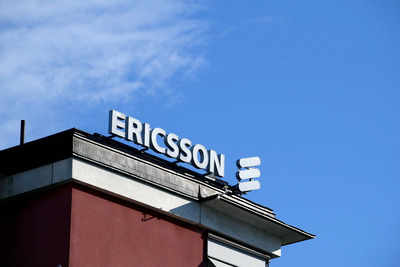
Europe’s biggest telecom equipment and network company
Ericsson
is reportedly planning to move its headquarters from Sweden to the US. CEO
Borje Ekholm
has suggested that the company might consider relocating due to Europe’s struggling telecom industry. In an interview with Bloomberg, Ekholm revealed that the company has been shifting investments to north America, where the business climate is more favourable for growth.
Ekholm told Bloomberg that Europe is falling behind and lawmakers in the continent must prioritise consolidation and reduce regulation to improve the situation.
“The natural conclusion of that is we’ll be shrinking in Europe and growing in North America,” he said.
Ekholm continued to state that the question of officially relocating to the US is a recurring topic, and while Ericsson has deep ties in Europe, it needed to take a wider view of what the world will look like in the future.
“Would we relocate at some point in time? That could well happen,” he said.
What makes Ericsson CEO downbeat on European market
Ericsson CEO said that Europe is one of the weakest telecom markets in the world. He said what policymakers need to do is encourage more consolidation and cut regulation there.
5G adoption
rates in the Europe lag behind many other developed nations. Ericsson CEO said that he has thrown his weight behind efforts by the region’s telecom operators to combine after seeing a number of mergers either rejected or heavily modified by regulators. “Europe is in need of consolidation,” Ekholm said. “It’s too many operators.”
The
European Commission
has long thwarted consolidation, in part to maintain affordable service. Operators are now offering phone plans at such low prices that they can’t afford to invest, Ekholm said.
‘US ban on Huawei is ineffective’
In the wide-ranging interview, Ekholm also said that the US sanctions on Huawei had proven ineffective and the Chinese company remains its biggest competitor. Ericsson is attempting to outdo competition through R&D, as well as investments around open RAN.
Indeed, the company made major inroads in the open RAN space in the US, securing a $14 billion contract with AT&T at the end of 2023.
The executive acknowledged an open RAN approach may lead to more competition for Ericsson in the broader sense but added that a “horizontal platform” is “the way for us to actually beat the Chinese”.
As well as open RAN, Ekholm said he expects its network API business to generate revenue in the next one or two years.
The Swedish vendor made a big play around APIs in 2022, spending $6.2 billion to acquire cloud provider Vonage Holdings. However it has since taken around a $4 billion hit on the value of the unit in total, due to lower anticipated market growth.
Ekholm admitted Ericsson had “dropped the ball” and “lost focus” on Vonage’s core, but it is now more intent on executing its business plan.







